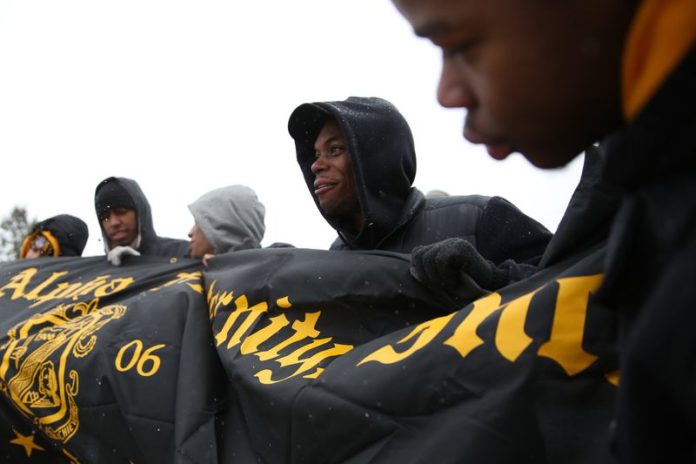
KALAMAZOO, MI — Unity, strength, service, fellowship.
These are just a handful of reasons people have found to join up with Black sororities and fraternities over the years — and reasons people have stayed committed and involved for a lifetime.
The first of the “Divine Nine” Greek organizations that make up the National Pan-Hellenic Council (NPHC), the Alpha Phi Alpha Fraternity, was founded in 1906 on the campus of Cornell University. Two years later, the Alpha Kappa Alpha Sorority followed suit on the campus of Howard University.
Between 1911 and 1922 six more predominantly Black fraternities and sororities were founded on campuses at Indiana University, Howard and Butler University. In 1963, the ninth and final, the Iota Phi Theta Fraternity was established at Morgan State University, rounding out the NPHC.
“Cornell University was a predominantly white university when my fraternity started out in 1906,” said Sidney Ellis, who joined the Alpha Phi Alpha fraternity as a student at Western Michigan University in 1982 and is president of the organization’s Kappa Psi Lambda graduate chapter in Kalamazoo.
“It started out as a study club, where the first brothers came together as young Black men to make sure that they were doing what they were supposed to do and working together educationally. They knew that they needed to bond together and encourage each other as much as they could in their studies. And the fraternity was based on a drive for education.”
That encouragement and camaraderie was important for Black students at the time the first organizations were founded as Black students did not have ins with white on-campus organizations.
“Going back to the foundation of it all, the creation of Black sororities and fraternities was very much due to the fact that was we weren’t able to join other organizations, so we had to form our own,” said Western Michigan University senior Calise Chiddick, an Alpha Kappa Alpha Sorority sister who also serves as the president for the school’s NHPC.
Western Michigan University is home to eight of the Divine Nine sororities and fraternities, a number that is higher than a lot of other institutions of higher learning, Chiddick said.
And as much has changed in American culture throughout the years, recent events and the Black Lives Matter movement have proven how much there is a need for unity of Black students, especially when at a school where the vast majority of students don’t look the same as they do, she said.





















